What advice would you give a first year engineering student?
Don’t be afraid to ask!- Steve Jobs
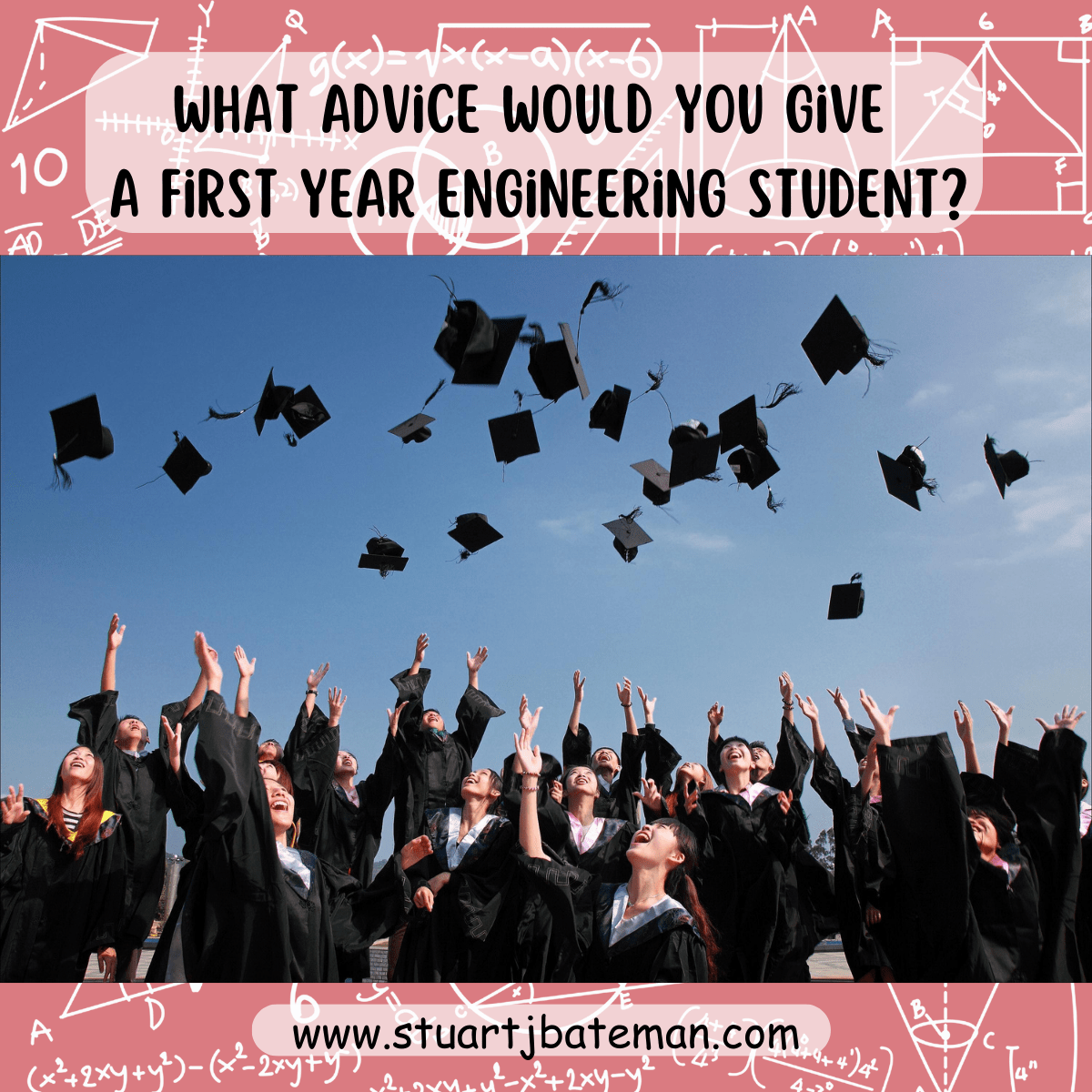
So what would I say to an engineering student?
Even though the question is asking to advise a first year engineering student, it’s the same as the question “What do I know now that I would want my younger self to know”, so using that prompt I sat down and looked through the advice I’ve been blogging about over the last 2 years and came up with the following tips:
- Be curious – Ask questions:
- Embrace curiosity as a driving force for personal and professional growth. Asking questions fosters a mindset of exploration and continuous learning.
- Learn how to learn:
- Sharpen the saw: Continuously refine your learning methods. Adaptability and flexibility in your approach are key.
- Foster the mindset to continuously learn: Cultivate a mindset that welcomes learning as a lifelong journey rather than a destination.
- Experiment – Don’t be afraid of failure:
- Embrace experimentation as a means of discovering innovative solutions. Failure is a stepping stone to success; it provides valuable lessons.
- Challenge your ideas and others:
- Be open-minded but be skeptical of other opinions and ideas: Embrace diverse perspectives but critically evaluate them. Constructive skepticism encourages robust thinking.
- Challenge your assumptions: Actively question assumptions to uncover hidden opportunities and refine your understanding.
- Enjoy the topic, explore every aspect it has before you choose a specialty:
- Immerse yourself in the subject matter. A thorough exploration ensures a well-informed decision when choosing a specialization.
- Read – find the time to gain knowledge:
- Explore a variety of sources beyond books, including websites, videos, articles, and journals. Diversify your knowledge acquisition methods.
- Find a mentor:
- Look for inspiration beyond your immediate surroundings. A mentor can offer guidance, share experiences, and provide valuable insights into your chosen field.
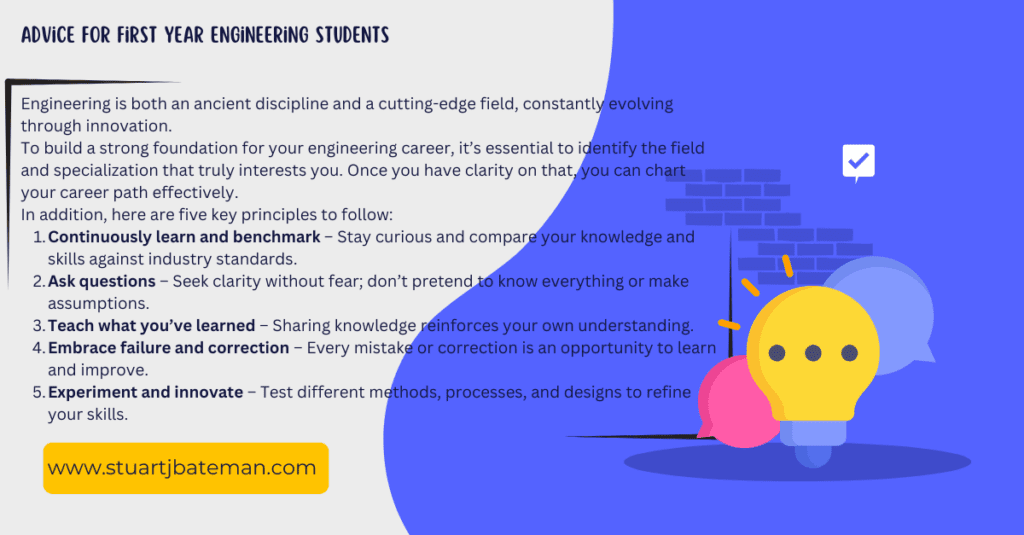
- Learn how to think critically:
- Develop the ability to analyse information objectively. Critical thinking enhances problem-solving and decision-making skills.
- Learn first principles thinking:
- Understand the fundamental principles underlying a concept. First principles thinking enables innovative problem-solving and a deeper understanding of systems.
- Think Win:Win:
- Foster a collaborative mindset where mutual benefit is sought. Win:Win thinking promotes positive relationships and sustainable success.
- Focus on your priorities, this will allow you to manage your time:
- Prioritize tasks based on importance. Effective time management ensures that energy is directed toward high-impact activities.
- Automate where you can, learn to code and simplify your life:
- Embrace automation and coding skills to streamline processes. Simplifying tasks frees up time for more meaningful pursuits.
- Keep a log book for your own thoughts and ideas:
- Maintain a journal to document insights, reflections, and ideas. A log book is a valuable resource for personal and professional development.
- Figure out the key skills you need to develop in your career as an engineer:
- Try here for suggestions:
- 30 Mechanical Engineering Skills you need to learn (Technical and Soft skills) | Stuart Bateman
- Think about the one skill that will give you the most long-term benefit and then learn it:
- Prioritize skill acquisition based on long-term impact on your career goals.
- Never be afraid to ask for help…ever:
- Recognize that seeking help is a strength. It accelerates learning, resolves challenges faster, and builds a supportive network.
Looking back over my own career of 20 years, I can see milestones where these points were learnt or would have helped me, it’s only now that I have these lessons that I can benefit from them and pass on to others.
Let me know your experiences or thoughts about this topic!
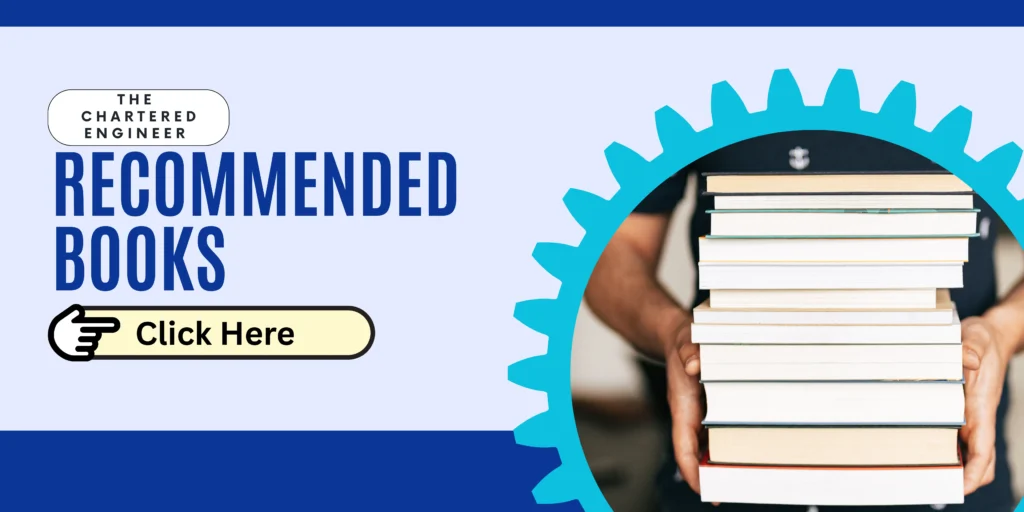
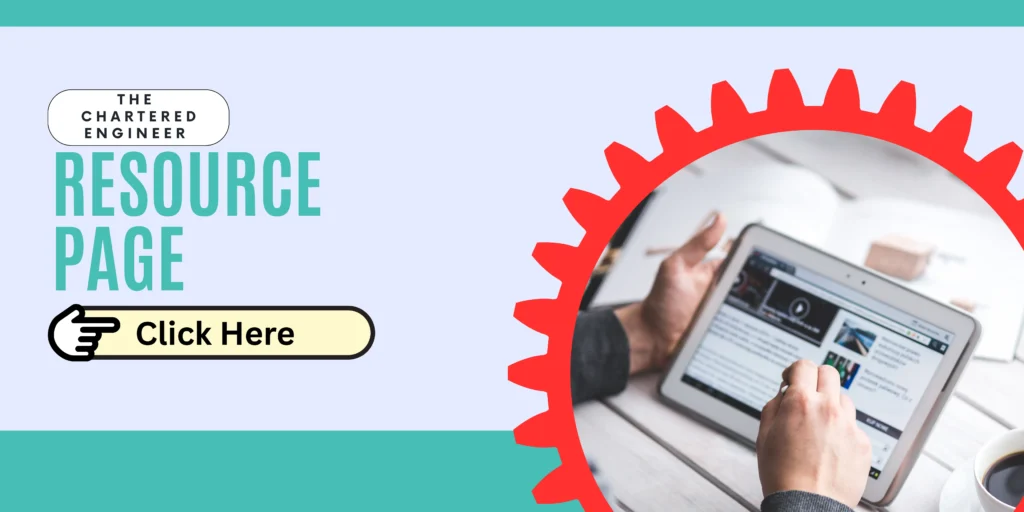
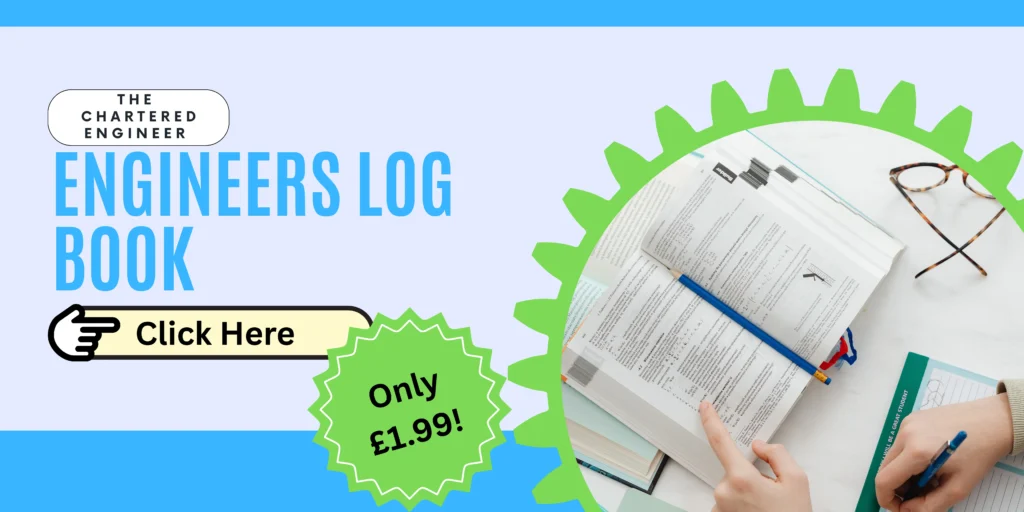
What are your thoughts? Have I covered everything or is there more you know and would like to share?
I’m always learning and improving this site and my blogs, so please feel free to get in touch with me via LinkedIn or this site to discuss any topics I have covered.
If you’re having trouble finding ways to progress check out these sites filled with free learning tools:


Discover more from The Chartered Engineer
Subscribe to get the latest posts sent to your email.